10+ Sample Weekly Study Schedule
-
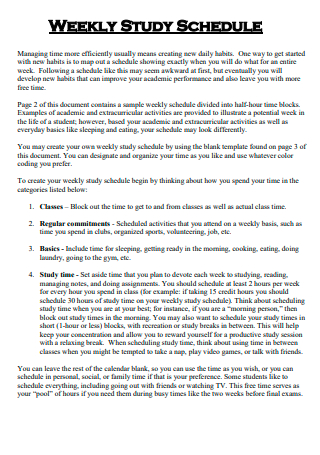
Weekly Study Schedule Template
download now -
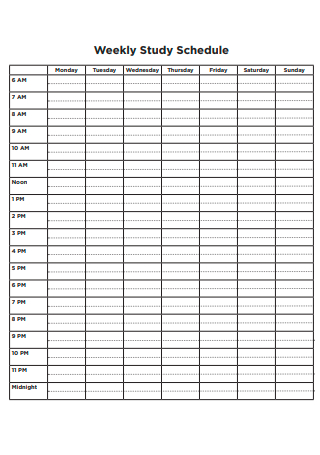
Basic Weekly Study Schedule
download now -

Weekly Word Study Schedule
download now -
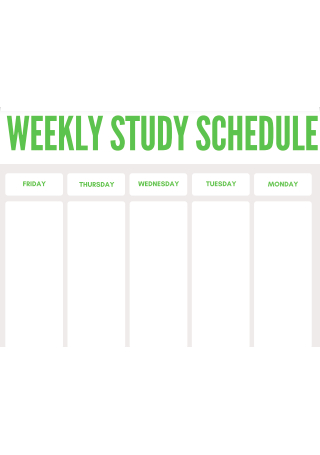
Formal Weekly Study Schedule
download now -
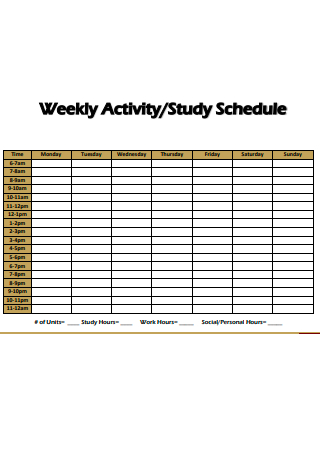
Weekly Activity Study Schedule
download now -
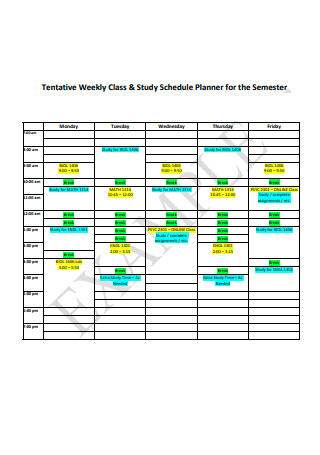
Weekly Study Schedule Example
download now -
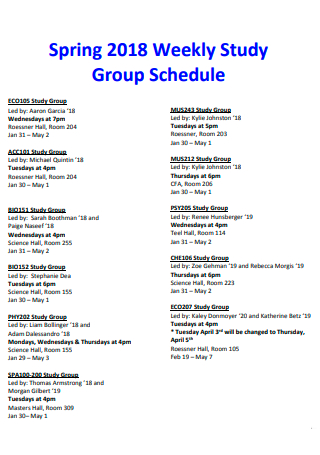
Weekly Study Group Schedule
download now -
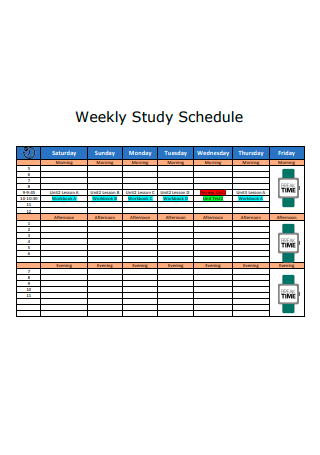
Weekly Study Schedule in PDF
download now -
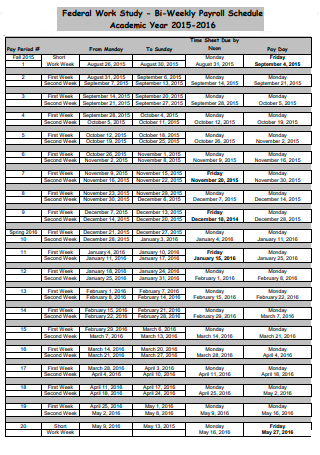
Weekly Payroll Work Study Schedule
download now -
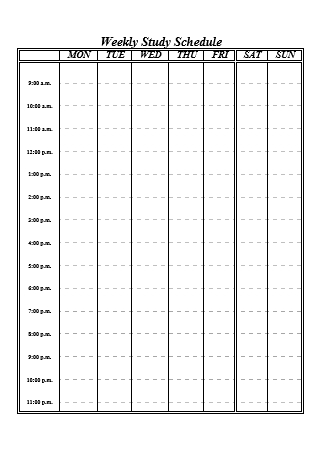
Sample Weekly Study Schedule
download now -
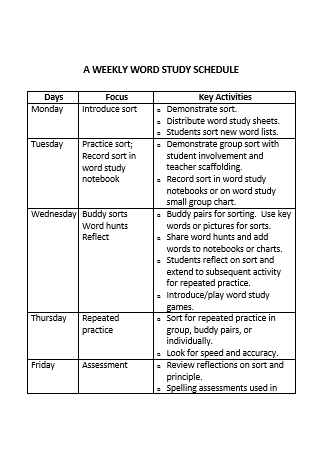
Weekly Study Schedule in DOC
download now
FREE Weekly Study Schedule s to Download
10+ Sample Weekly Study Schedule
What Is a Weekly Study Schedule?
Study Tips for Students
Skills Needed to Cultivate Good Study Habits
How to Create a Weekly Study Schedule
FAQs
How do I make a weekly study schedule?
What is a weekly study schedule?
What is the best schedule for study?
What Is a Weekly Study Schedule?
A weekly study schedule is a guide that can help students foster better study habits with the aim of improving academic performance. It is a schedule or timetable that helps instill organizational skills and discipline in the student.
According to an online article by the University of North Carolina at Chapel Hill, merely reading the text may not necessarily be enough when studying. But to actually immerse oneself and form a meaningful connection to a particular reading or material, one needs to engage himself or herself fully. By coming up with examples, relating academic material to your own experiences, and regulating your own learning, you are engaging in active studying.
Study Tips for Students
Not all people have the same strategies and techniques when it comes to their studies. What works for one student may not necessarily work out for another. With that being said, these basic tips might help you improve your study habits. All it takes is practice and commitment, and you can be sure to find one that works for you.
Skills Needed to Cultivate Good Study Habits
There are certain skills that every student needs in order to fully optimize learning and good study habits. Any student would do well to nurture these skills if they want to improve their academic performance.
How to Create a Weekly Study Schedule
The sample schedules above will make it easier for you to create your own weekly study timetable. Save time and energy with the simple and ready-made templates above. Choose the template that best suits your preferences and follow the simple steps below.
Step 1: Set Weekly Goals
If you decide to commit to a weekly study schedule, it might be helpful to reflect on your goals first. Setting realistic objectives and attainable goals can help you stick to your commitments especially when you are faced with challenges. It is not a matter of if you will encounter trials and hardship, but only a matter of how you can prepare for them. With goal-setting, it can be as simple as getting an above-average mark in a particular subject or dedicating 4-6 hours of study to cover an entire topic.
Step 2: Create a Timetable
A study schedule demands order and an element of time. With a timetable, it is much easier to plot or track one’s subjects and progress. Since it is a personal schedule, you decide how it will be presented. The sample templates above might offer some ideas and help you decide on a format. The two elements to any timetable are the date and time. So make sure to enumerate the days of the week and the specific time slots.
Step 3: Fill in the Table
You can create a table using basic Microsoft Office applications like Excel and Word. After setting up the table layout, fill in the boxes with the corresponding subjects and/or classes. You can modify the timetable as you see fit. Changes are inevitable, and it is important to allow some flexibility in your schedule. Keeping a schedule that is too rigid can end up being counterproductive.
Step 4: Make it Creative
The last step is optional but highly encouraged. A simple and basic study schedule is fine but it does not hurt to get a little creative. To make your schedule more visually appealing, you can add imagery and play around with different colors and fonts. You will find a lot of predesigned templates online that you can easily customize to make your own. There is a lot of room for creativity and resourcefulness; you just need to find a way to express it.
FAQs
How do I make a weekly study schedule?
To make a weekly study schedule, you need to prepare and organize your information. In order to fill out a timetable or schedule, you would need the right information to complete your table. You need a general idea of the subjects you want to focus on. Once you have that, you can create your timetable. Indicate the days of the week above as the first row of your table. Place the time in the first column. The different templates above can also serve as a reference guide when you make your weekly study schedule.
What is a weekly study schedule?
A weekly study schedule is intentionally setting aside some time each day and every week to cover different subjects and study various topics. It is simply being proactive in one’s studies and learning. By maintaining a schedule to follow, you are in effect studying regularly and making the effort to improve your academic performance.
What is the best schedule for study?
The best schedule for studying depends entirely upon the individual. No one two people are the same. What works for one student does not always mean it will yield the same results for another. In order to know what works for you, you need a keen sense of self-awareness and enough motivation to study. To illustrate, if you feel that you are more productive and energetic in the morning or if you consider yourself an auditory type of learner; you can structure your study habits around these two factors.
With the right perspective or mindset, studying can become more than just a chore or academic requirement. Figuring out the best way for you to maximize learning and comprehension is a challenging but worthwhile task. Choose from a wide selection of printable templates above, and find one that suits your needs to begin customizing your own weekly study schedule now!
